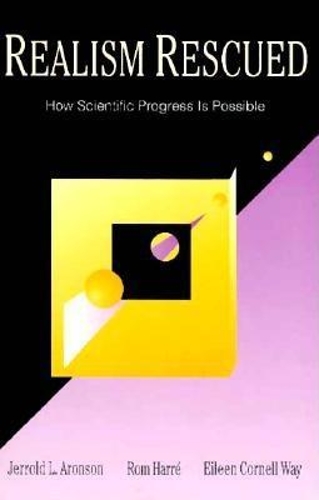
Realism Rescued: How Scientific Progress Is Possible
(Paperback)
Publishing Details
Realism Rescued: How Scientific Progress Is Possible
By (Author) Jerrold Aronson
With Eileen Cornell Way
Open Court Publishing Co ,U.S.
Open Court Publishing Co ,U.S.
8th January 1999
United States
Classifications
Tertiary Education
Non Fiction
Philosophy of science
149.2
Physical Properties
Paperback
213
Width 152mm, Height 228mm
408g
Description
Does science give us a progressively more accurate and objective account of the world This book by three leading philosophers of science presents a new defense of scientific realism against skeptical and positivist attacks. While positivists view scientific theories as devices for predicting observable phenomena, realists maintain that theories describe hidden processes which account for observable phenomena.
This problem raises the question: What are scientific theories about Do they refer to an unobservable yet real realm of physical processes It seems undeniable that the scientific endeavor has in some sense made progress. But is the increasing practical success of the physical sciences good grounds for believing that their theories and techniques lead us nearer to the truth According to Aronson, Harre, and Way, past failures to answer these questions have been due in large part to the assumption that knowledge is expressed in propositions and organized by the canons of logic. On the assumption that science must meet the world in a correspondence between statements and states of affairs, realism turns out to be difficult to defend. Realism Rescued offers a new direction, relying on the importance of models in scientific work. Theories are not to be thought of as sets of propositions, though they can be expressed propositionally. Rather they are models, chunks of orderings of natural kinds. For the first time, the indispensability of models is turned into a powerful argument for realism, an argument that confronts the skeptic on his own ground. By drawing on a new technique of knowledge representation developed in Artificial Intelligence, the dynamic type-hierarchy, the authorsgive a convincing account of the central role of models. Such concepts as verisimilitude, natural kind, natural necessity, and natural law can then be presented far more clearly than ever before.
